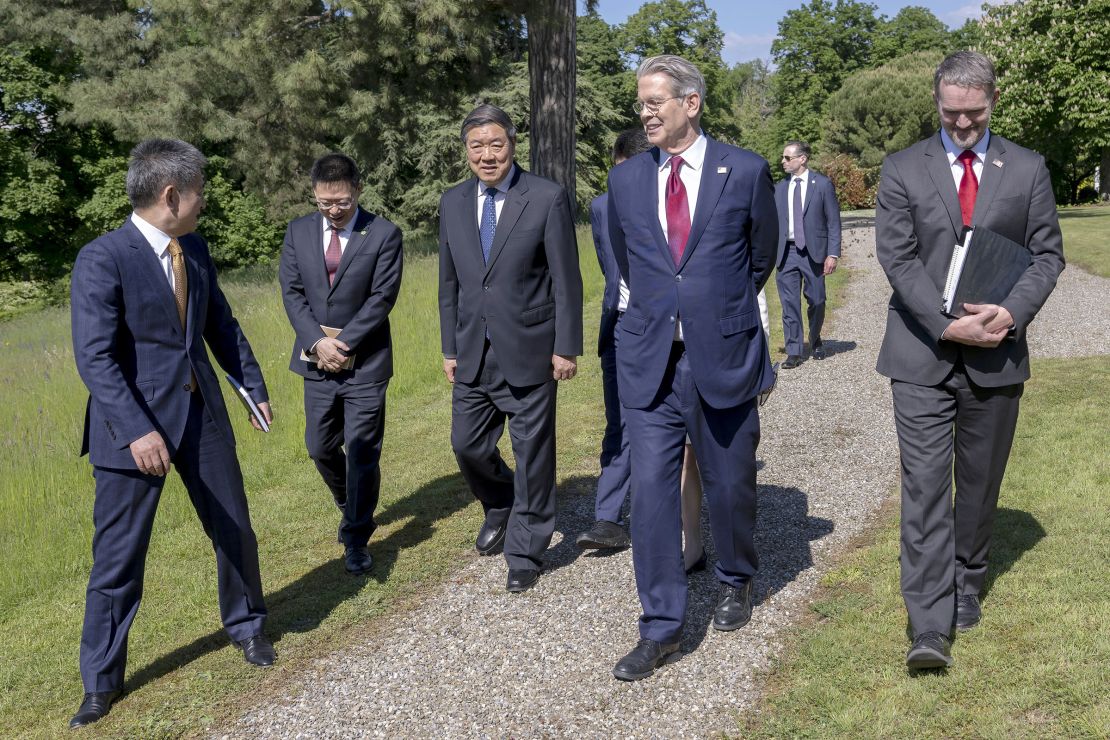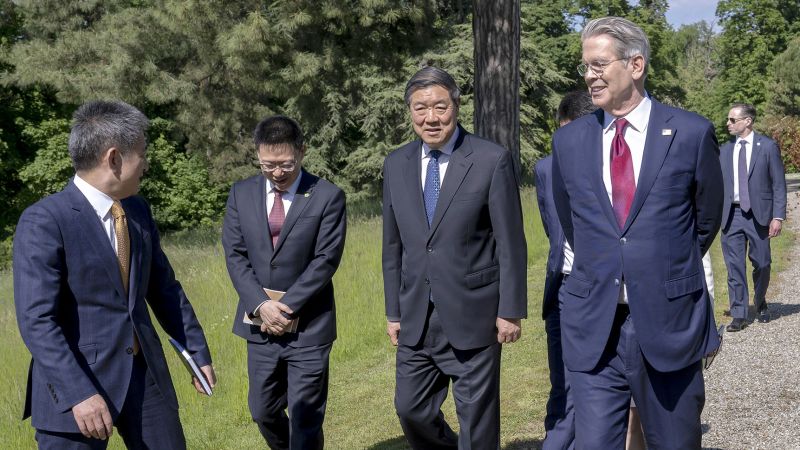Hong Kong
CNN
—
Just days after the United States and China declared a temporary truce over tariffs, tempers are already flaring: this time over the future of Beijing’s most advanced homegrown semiconductors.
Over the past week, Beijing has repeatedly lashed out at Washington for warning companies against using AI chips made by national tech champion Huawei. It has even accused the Trump administration of “undermining” a consensus reached at recent trade talks in Geneva, where both sides agreed to temporarily roll back tariffs and use a 90-day window to hash out a broader deal.
The conflict over Huawei’s most advanced chips serves as a reality check that despite the positive words shared by US and Chinese negotiators last week, there are still sharp differences between the two sides on a variety of subjects that may be difficult to bridge.
On Wednesday, China’s Commerce Ministry fired its latest broadside, accusing the US of “abusing export controls to suppress and contain China” and engaging in what it called “typical acts of unilateral bullying and protectionism.”
China was responding to the Trump administration’s announcement last week rescinding a set of Biden-era curbs meant to keep AI chips out of the hands of foreign adversaries.
As part of that announcement, the US Commerce Department issued guidance on May 12 warning companies that “using Huawei Ascend chips anywhere in the world would violate US export controls.” The department has since changed its wording to remove the reference of “anywhere in the world” in an updated version of the statement.
The Ascend chips are Huawei’s most powerful AI processors, which are used to train AI models and aim to challenge Nvidia’s dominance in designing high-end chips. Huawei’s efforts are central to Chinese leader Xi Jinping’s plans to build up China’s own capacity to develop cutting-edge chips as it vies for AI supremacy with the US.
At a top political meeting last month, Xi called for “self-reliance” to develop AI in China, saying his country would leverage its “new whole national system” to target bottlenecks such as high-end chips.
CNN has reached out to Huawei for comment.

On Monday, Beijing signaled the US Commerce Department’s wording change in the updated statement on Huawei wasn’t enough to end the feud. In a statement, China’s Commerce Ministry said that despite the “adjustment” in wording, the “discriminatory measures and market-distorting nature” of the guidance itself remained unchanged.
“China has engaged in negotiations and communications with the US at various levels through the China-US economic and trade consultation mechanism, pointing out that the US actions seriously undermined the consensus reached during the high-level talks in Geneva,” the ministry said, urging the US to “correct its mistake.”
The ministry’s latest statement on Wednesday came with an extra warning from Beijing to global businesses, threatening legal action against anyone who helps what it calls a US attempt to “globally ban the use of advanced Chinese chips.”
“Any organization or individual that implements or assists in implementing these US measures may be in violation of China’s Anti-Foreign Sanctions Law and other relevant laws and regulations, and must bear corresponding legal responsibilities,” the statement said.
“China will closely monitor the implementation of the US measures and will take resolute steps to safeguard its legitimate rights and interests,” it added.
This is a developing story and will be updated.

